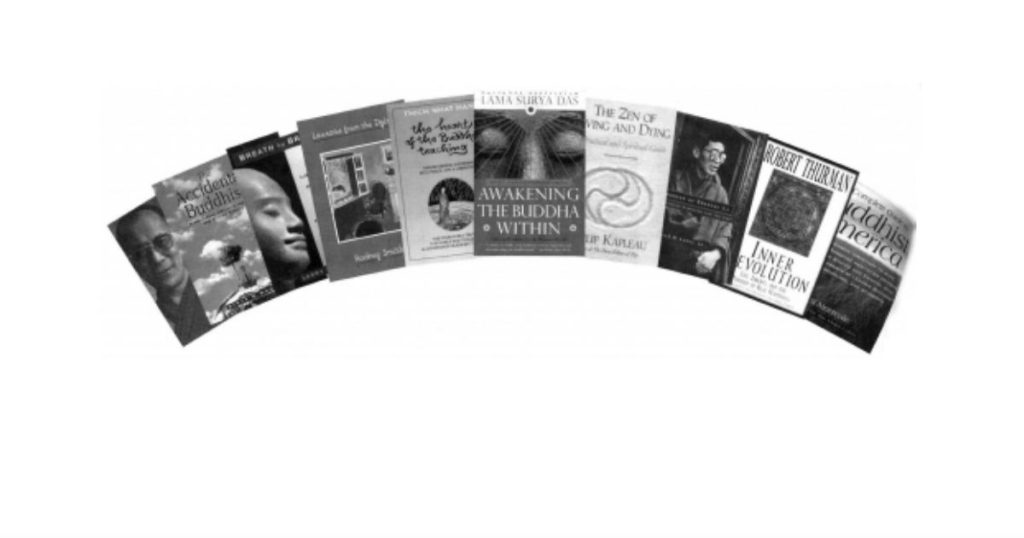When we hosted a discussion titled “What Led You to Buddhism?” in 2011, we asked participants to share the stories of how they came to learn more about Buddhism. While reading through the discussion from people of many different backgrounds and traditions, one common theme became immediately apparent: Buddhist books.
As we continued to read through the comments, it occurred to us that we should compile all the Buddhist books for beginners mentioned into a list, and that such a list, comprised solely of personal accounts of life altering realizations, could be quite special. Here is that list:
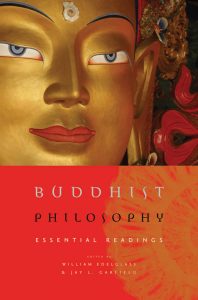 Buddhist Philosophy: Essential Readings
Buddhist Philosophy: Essential Readings
by William Edelglass and Jay L. Garfield
What is Buddhism? While the diversity of Buddhist schools of thought make it all but impossible to encapsulate the tradition in one book, the new collection. Buddhist Philosophy: Essential Readings is as comprehensive an attempt as any. This is a dense volume, but its coherent presentation of Buddhist philosophy in all its variety makes diving in worth the effort.

Start Where You Are
by Pema Chödrön
From its first sentence— “We already have everything we need”—to its last, Start Where You Are stops us in our tracks. An American nun in the Tibetan tradition, Pema Chodron, takes subtle Tibetan teachings and translates them into clear, straight talk. Throughout the book Chodron confronts the habitual self-help impulses—get thin, get rich, get enlightened—that dominate Western society. Chodron’s directives are never strident or judgmental; instead they are reminders uttered with encouragement, patience, and lighthearted humor.
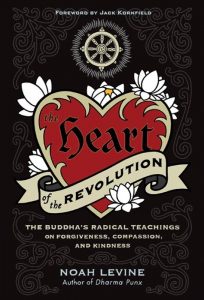
The Heart of The Revolution
by Noah Levine
In The Heart of the Revolution, Levine invites us to explore the Buddha’s radical teachings on forgiveness, compassion, and kindness. Sharing his own struggle over whether he could let go of anger and develop a loving heart, Noah reveals the tools that helped him embrace his true Buddhanature.
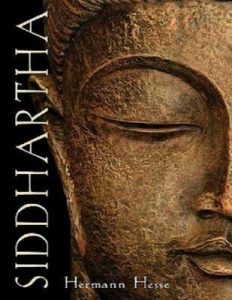
Siddhartha
by Herman Hesse
When New Directions decided to publish the first English translation of Hermann Hesse’s Siddhartha in 1951, it could not have foreseen the enormous impact it would have on American culture. The novel’s ostensibly simple narrative appealed to the restless drifter, the alienated youth, and the political anarchist alike.
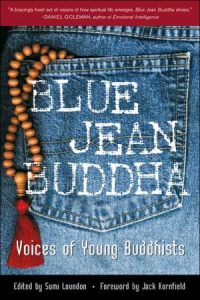
Blue Jean Buddha: Voices of Young Buddhists
edited by Sumi Loundon
Loundon’s interest in the practice of young American Buddhists was stirred while working in the kitchen of a Buddhist retreat center in New England. It occurred to her that others had very different reasons than she did for practicing Buddhism. So she set out to find other young Buddhists and collect their stories.
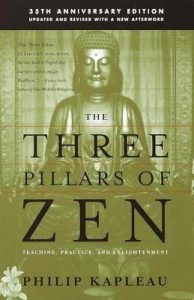
The Three Pillars of Zen
by Philip Kapleau Roshi
When The Three Pillars of Zen appeared in 1965, it had a monumental impact on the direction of Buddhism in North America. Zen teacher Philip Kapleau combined a series of talks for beginning students by Yasutani Roshi with classic Zen texts. It offers the first how-to instructions for Western practitioners and remains one of the most influential and inspiring Zen books in the West.
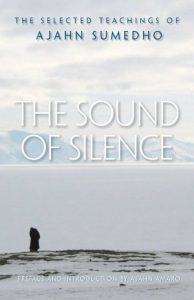
The Sound of Silence
by Ajahn Sumedho
Teachings from Ajahn Sumedho, a popular American-born teacher and founder of the first Theravada monastic community in the West, have been hard to come by in print. The talks collected in this volume preserve his warm, humorous style, and reflect his flexible view of teaching as “presenting things for you to investigate.” These spontaneous talks are accessible, but they require attention. The title comes from a meditation practice Sumedho developed on his own over forty years of practice, one not found in the Pali canon.
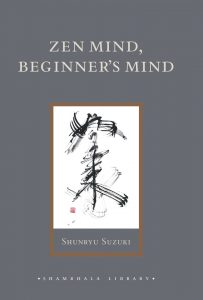
Zen Mind, Beginners Mind
by Shunryu Suzuki
Zen Mind, Beginner’s Mind by the founder of San Francisco Zen Center, Shunryu Suzuki Roshi, is one of the undisputed classics of American Buddhism. First published in 1970, the book’s simple approach and plainspoken language have made it timeless.
More beginner-friendly Buddhist Books
(in alphabetical order)
A New Earth by Eckhart Tolle
A Still Forest Pool by Ajaan Chah
An End to Suffering by Pankaj Mishra
Awakening Compassion by Pema Chödrön
Awakening the Buddha Within by Lama Surya Das
Awakening to the Sacred by Lama Surya Das
Awareness by Anthony DeMello
Being Nobody, Going Nowhere by Ayya Khema
Buddhism at Work by George Bond
Buddhism for Beginners by Thubten Chodron
Buddhism Plain & Simple by Steve Hagen
Buddhism Without Beliefs by Stephen Batchelor
Buddhism: An Introduction and Guide by Christmas Humphreys
The Buddhist Religions: A Historical Introduction by Richard H. Robinson
Comfortable with Uncertainty by Pema Chodrom
Cutting Through Spiritual Materialism by Chögyam Trungpa Rinpoche
Dharma Bums by Jack Kerouac
Dharma Punx by Noah Levine
Eight Mindful Steps to Happiness by Bhante Henepola Gunaratana
Eight Steps to Happiness by Geshe Kelsang Gyatso
Everyday Suchness by Gyomay M. Kubose
Everyday Zen: Love & Work by Charlotte Joko Beck
Full Catastrophe Living by Jon Kabat-Zinn
Getting Unstuck by Pema Chödrön
Golden Wind: Zen Talks by Eido Shimano Roshi
Hardcore Zen by Brad Warner
How to Meditate by Kathleen McDonald
How to Solve Our Human Problems by Geshe Kelsang Gyatso
If the Buddha Got Stuck by Charlotte Sophia Kasl, Ph.D.
In the Buddha’s Words: An Anthology of Discourses from the Pali Canon by Bhikkhu Bodhi
Indestructible Truth by Reginald A. Ray
Life of Milerapa by Lobsang Jivaka
Manual of Zen Buddhism by D. T. Suzuki
Mindfulness in Plain English by Bhante Henepola Gunaratana
Monkey by Wu Ch’eng-en
Myth of Freedom by Chögyam Trungpa Rinpoche
No Time to Lose by Pema Chödrön
Not Always So by Suzuki Roshi
Old Path White Clouds by Thich Nhat Hanh
On The Road by Jack Kerouac
One Breath at a Time by Kevin Edward Griffin
Peace in Every Step by Thich Nhat Hanh
Radical Acceptance by Tara Brach
Returning to Silence by Dainin Katagiri
Secret of the Vajra World by Reginald A. Ray
Shōbōgenzō by Dogen
Spirit of Zen by Alan Watts
Taking the Path of Zen by Robert Aitken Roshi
The Art of Happiness by His Holiness the Dalai Lama
The Book on the Taboo Against Knowing Who You Are by Alan Watts
The Buddhist Path to Simplicity by Christina Feldman
The Connected Discourses by Bhikkhu Bhodhi
The Cow in the Parking Lot by Leonard Scheff and Susan Edmiston
The Dhammapada by the Buddha
The Energy of Prayer by Thich Nhat Hanh
The Haunting Zen of Dainin Katagiri by Dosho Port
The Long Discourses by Maurice Walshe
The Middle Discourses by Bhikku Nanamoli
The Miracle of Mindfulness by Thich Nhat Hanh
The New Social Face of Buddhism by Ken Jones
The Quantum and the Lotus by Matthieu Ricard and Trinh Xuan Thuan
The Supreme Source by Namkhai Norbu
The Tao of Sobriety by David Gregson
The Tibetan Book of Living and Dying by Sogyal Rinpoche
The Tibetan Book of the Dead as translated by Gyurme Dorje
The Way of the White Clouds by Lama Anagarika Govinda
The Way of Zen by Alan Watts
The Wisdom Of No Escape by Pema Chödrön
Turning the Mind Into an Ally by Sakyong Mipham Rinpoche
Way of Meditation by Chögyam Trunga Rinpoche
What the Buddha Taught by Walpola Rahula
When Things Fall Apart by Pema Chödrön
Women’s Buddhism, Buddhism’s Women by Ellison Banks Findly
Words of My Perfect Teacher by Patrul Rinpoche
World as Lover World as Self by Joanna Macy
Zen and the Art of Motorcycle Maintenance by Robert M. Pirsig
Zen Flesh, Zen Bones by Nyogen Senzaki and Paul Reps
Zen Training by Philip Kapleau Roshi
Zurchungpa’s Testament with commentary by Dilgo Khyentse Rinpoche
Have one you would like to add?
Share it in the comment section below, so we can keep the list updated.
[This story was first published in 2011]
Thank you for subscribing to Tricycle! As a nonprofit, we depend on readers like you to keep Buddhist teachings and practices widely available.
